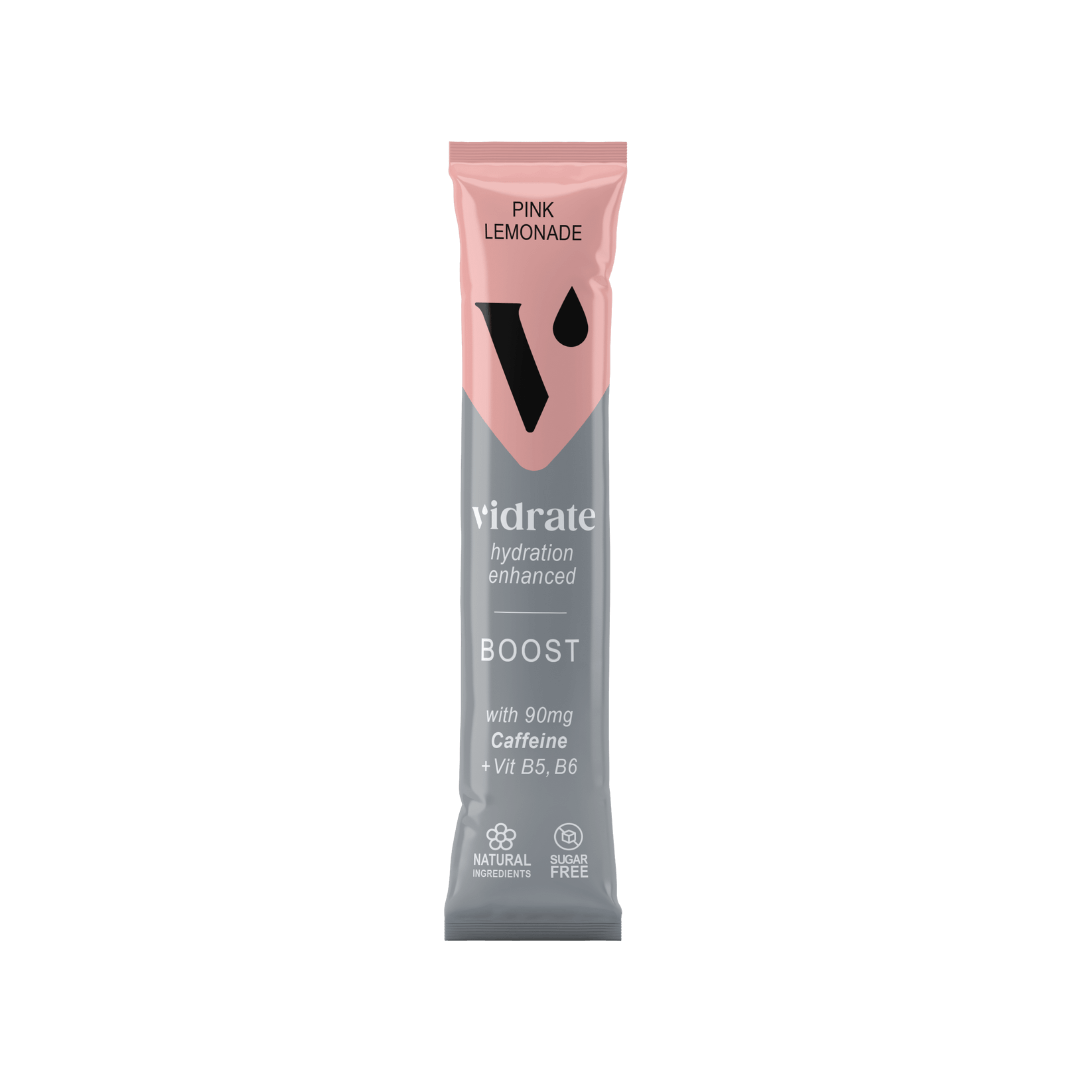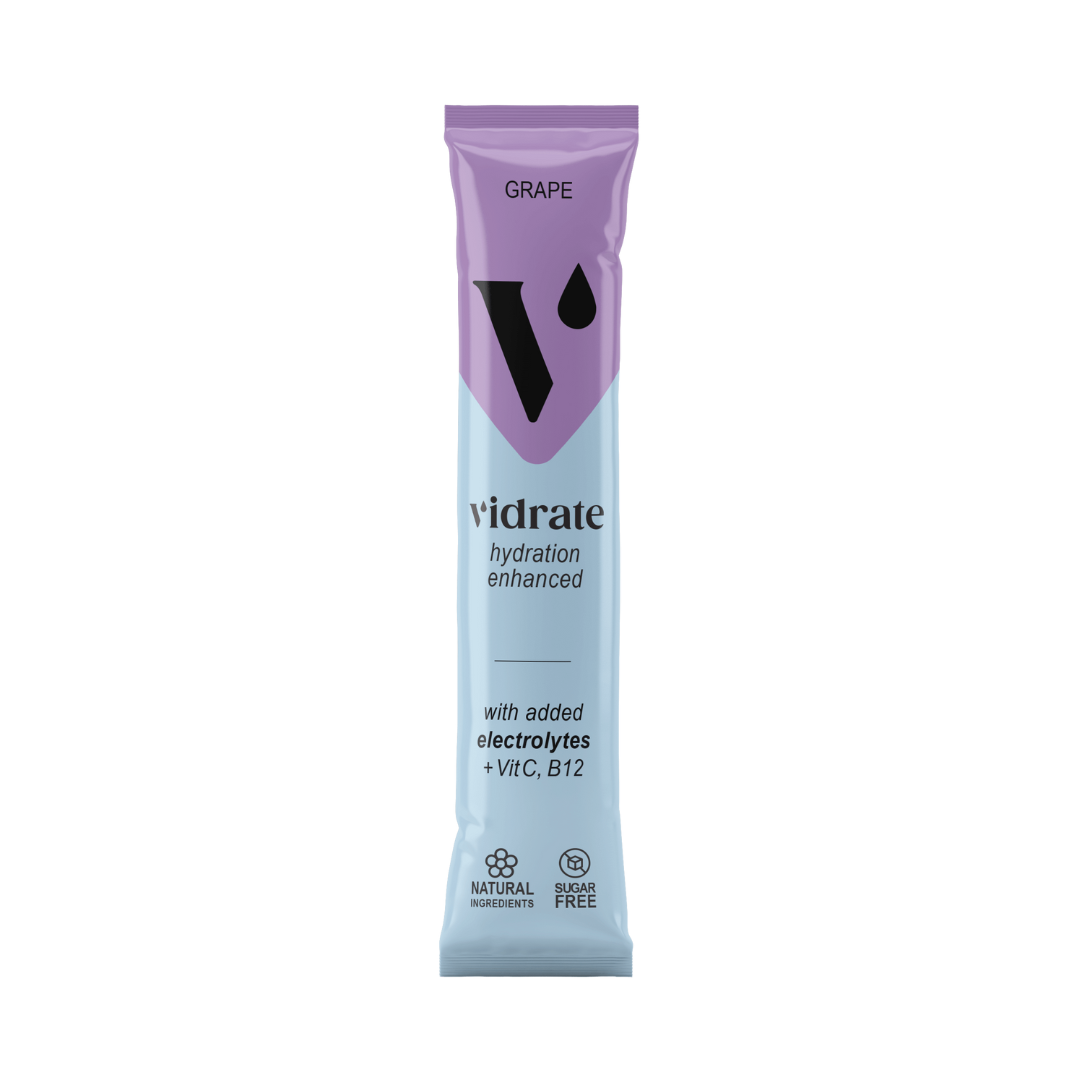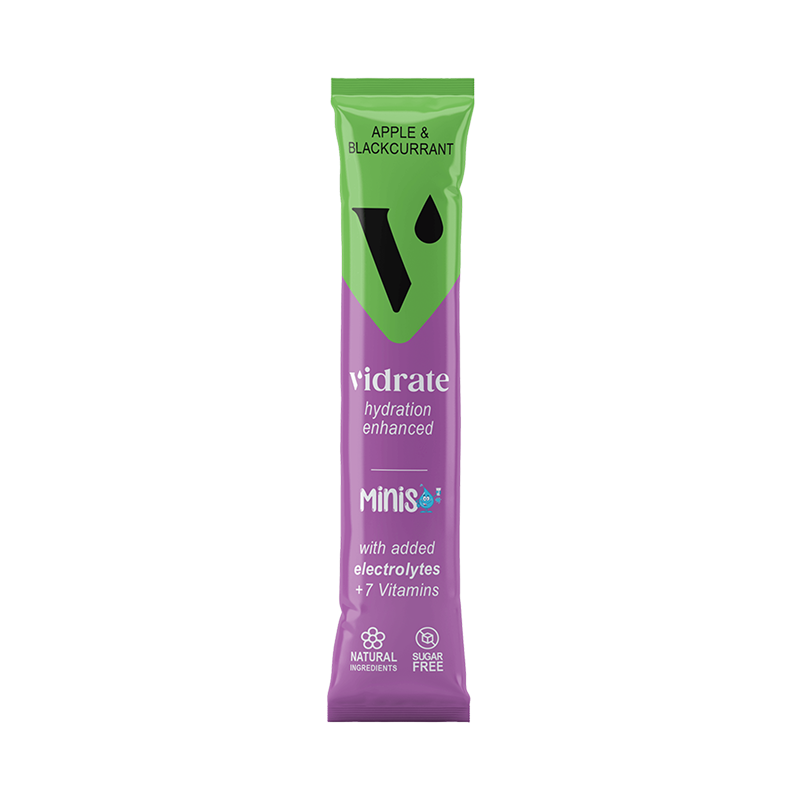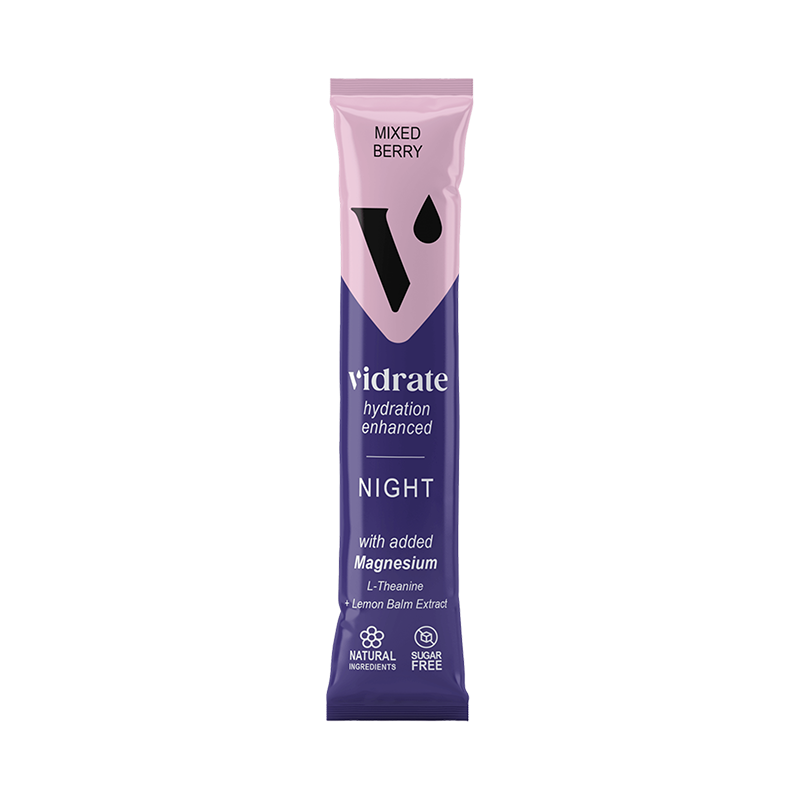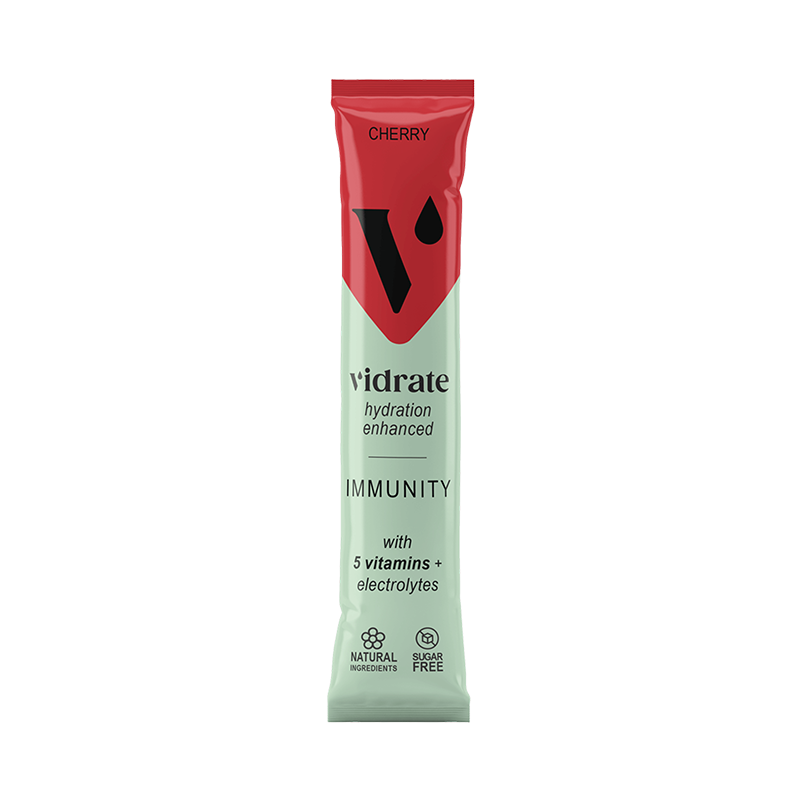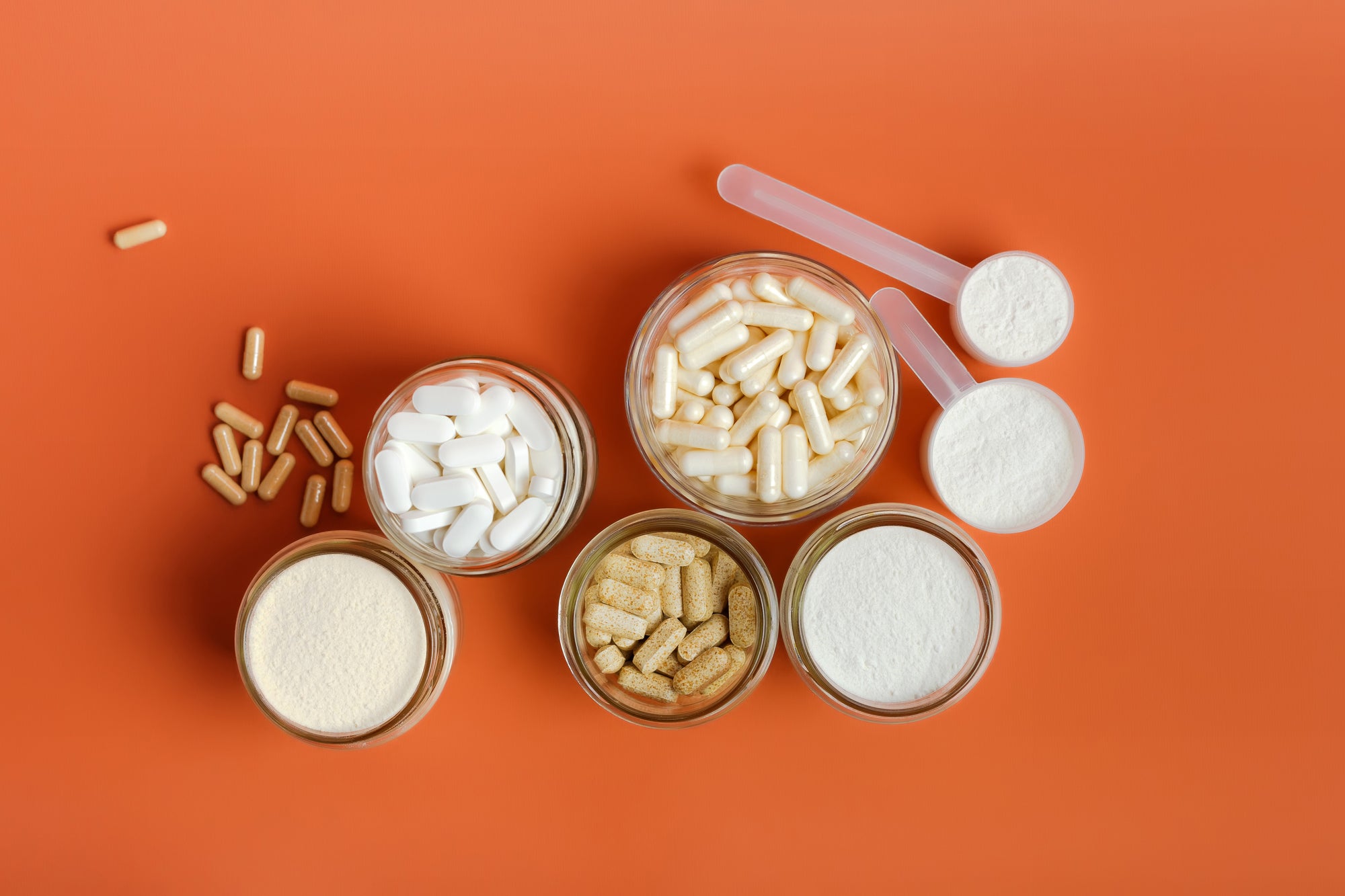

By Conor Evans
Electrolyte Powders: The Facts
What are electrolytes?
Electrolytes are essential minerals, needed by our bodies to function and develop. Sodium, potassium, phosphate, and magnesium are all examples of electrolytes. Electrolytes are slightly different from other minerals, as they carry a natural electrical charge when dissolved in water.
Crucial for chemical reaction regulation, muscle contraction and maintaining the balance of fluids inside cells, electrolytes can be found in foods such as chicken, avocado and watermelon. They can also be found in liquids. Our enhanced hydration powders are an excellent way to consume and replenish electrolytes.
Dehydration
Studies suggest that just 6% of the UK are hydrated. On average, we drink just 850ml of water each day - which equates to less than half of recommended daily intake. Dehydration can affect kidney function and is the primary cause of exhaustion. It can lead to shock, critically low blood pressure and severely reduced urine production.
For many, the flavour of water is off putting, with consumers preferring to drink cordials, juices, energy drinks and fizzy drinks. Unfortunately, many of these drinks have high sugar content, and contribute to tooth decay, weight gain and cardiovascular issues. Our hydration powders, meanwhile, improve the taste of water are 100% sugar free, vegan and can be added to both hot and cold water.
What electrolytes do I need?

Sodium
Sodium has a positive charge, and facilitates the absorption of nutrients. It also plays a crucial role in ensuring that cells maintain fluid balance. Sodium is commonly found in chicken, soups, pizza and bread.
What is associated with a lack of sodium?
Hyponatremia is a condition which occurs when sodium concentration in the blood is low. It can lead to irritability, weakened reflexes, nausea and vomiting. In extreme cases, hyponatremia can result in seizures and strokes.
Magnesium
Magnesium can be found in dark-green leafy vegetables, yoghurt, beans and nuts. It's used by the body to transform nutrients into energy. Magnesium is important for brain and muscle function.
What is associated with a lack of magnesium?
Hypomagnesemia is associated with a lack of magnesium, and can cause muscle weakness, loss of control, twitching and heart arrhythmias. It typically happens alongside potassium and calcium deficiencies.
Calcium
Calcium is responsible for building strong teeth and bones. It’s also used for other functions, such as muscle and heart rhythm control. Calcium can be found in dairy products such as milk and cheese and green leafy vegetables. Around 99% of calcium is stored in bones, with the remainder being stored in the blood.
What is associated with a lack of calcium?
Hypocalcemia occurs when calcium levels in the blood dip too low. Symptoms of hypocalcemia include confusion, sudden behaviour changes, and loss of muscle control. Some sufferers experience spasms of the throat muscles, which can make it difficult to speak, swallow and breathe.
Potassium
Potassium has a positive charge, and is used in combination with sodium in the body. Sodium and potassium are in sync, with one entering the cell as the other leaves. Potassium is key for healthy heart function, and is found in fruits, vegetables, nuts and dairy.
What is associated with a lack of potassium?
A lack of potassium is associated with hypokalemia, a condition which causes cramps, excess thirst and dizziness. In extreme cases, hypokalemia may cause rhabdomyolysis, or breakdown of muscle tissue, which can lead to serious kidney damage. It may also cause heart arrhythmia.
Chloride
Chloride has a negative charge and is commonly found in meat and seafood, but only in small amounts. In the West, we get most of our chloride from table salt, preservatives and processed foods. Chloride helps to maintain a balance of fluid, both inside and outside of cells.
What is associated with a lack of chloride?
A lack of chloride can lead to alkalosis, which can cause apathy, confusion, muscle twitching or arrhythmias and loss of control. It is the term for when alkaline in the body is too high. Chloride plays an important role in regulating your body’s pH.
Phosphate
Phosphate is key for transportation of molecules and chemical compounds outside of cells. It also aids the metabolic process. Nucleotides, which are also known as DNA’s building blocks, contain phosphate molecules. Dairy, red meat, poultry and nuts are all rich in phosphate.
What is associated with a lack of phosphate?
Hypophosphatemia results from a low level of phosphorus in the blood, and can lead to muscle weakness, heart failure, respiratory problems, and even seizures and coma.
Bicarbonate
When we breathe, our bodies make carbon dioxide. Much of this is expelled during respiration, but some is transformed into bicarbonate, which, like chloride, is used to maintain pH levels in the blood.
What is associated with a lack of bicarbonate?
Bicarbonate deficiency can lead to alkalosis, which causes muscular twitching and spasms, confusion, arrhythmia and apathy.
How are electrolytes lost
Electrolytes are lost when we lose fluids. Fluids are lost each day by sweating, breathing and urination - natural processes needed by the body to function. Rehydration treatments, such as electrolyte powders, ensure the rapid and effective replenishment of electrolyte powders.
Our electrolyte powders
Our hydration powders are fantastic for maintaining electrolyte balance in a simple, satisfying way. They provide a powerful electrolyte and vitamin boost and replenish sodium, phosphate, bicarbonate, chloride, potassium, calcium and more. Available in a variety of flavours including winter apple, mulled spice, mojito and mixed berry, there’s never been a tastier way to regulate electrolytes and ensure optimum performance.
We also offer a nighttime range, formulated with the help of Dr James Morehen. Packed with electrolytes, 5-HTP, L-Theanine and magnesium, these powders can be enjoyed before bed for a more relaxing night’s sleep. We cater to everyone - from athletes to office workers.
Our electrolyte powders can:
- Support day-to-day focus
- Accelerate recovery from injury
- Provide natural energy and hydration
- Boost performance
Hydration powders vs energy drinks
Energy drinks can provide a rapid electrolyte boost, they can also lead to an extensive list of health problems. Many energy drinks contain large quantities of sugar and can contribute to diabetes, tooth decay and high blood pressure. Our electrolyte powders, meanwhile, are sugar free, vegan, and a fantastic source of vitamin C and B12.
Hydration powders are also more convenient to carry around, particularly when travelling. They’re an affordable way to replenish electrolytes.
Vitamins C and B12
Our electrolyte powders contain both vitamin c and vitamin B12. Vitamin C is an antioxidant, and plays an important part in protecting cells from free radicals, molecules which may have a role in cancer and heart disease. It also aids in the maintenance of healthy skin, blood vessels and bones, as well as in wound healing. A lack of vitamin C may result in scurvy.
Vitamin B12, meanwhile, is a fat soluble vitamin, crucial for the absorption of calcium and phosphorus. According to recent studies, vitamin B12 may also reduce cancer cell growth and reduce inflammation. Symptoms of vitamin D deficiency may include fatigue, muscle weakness, hair loss and loss of appetite.
